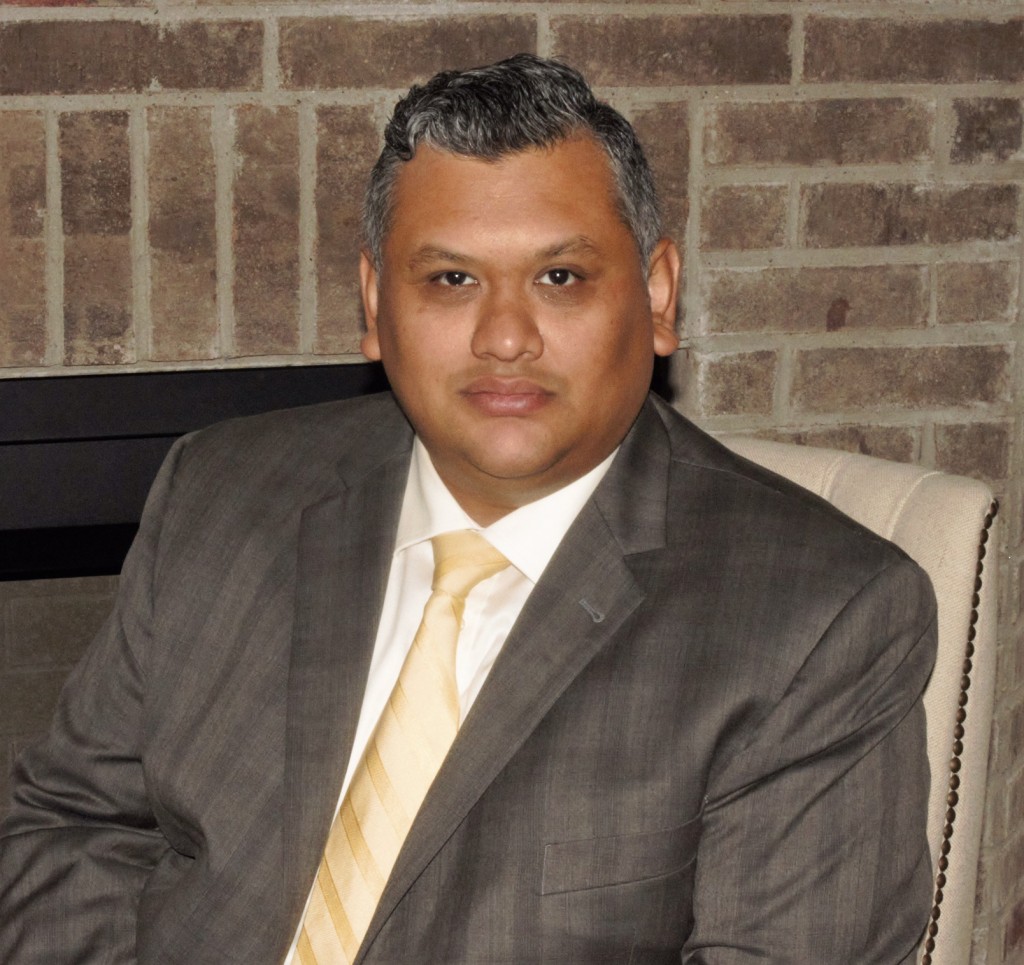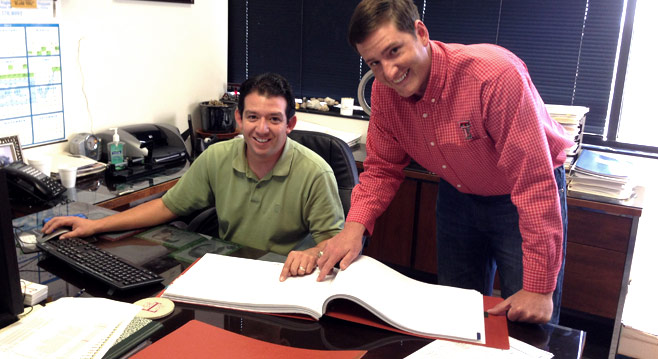Industry consultants have been navigating a dry spell. How three Permian Basin companies are toughing it out.
by Julie Anderson
Having worked for 10 years as a field mechanic for drilling rigs and pulling units, Joel Madrid knows the value of customer service. A particular trust develops when you know a company will answer the phone… when you know a supplier understands exactly what you need… when you can be certain you are receiving what you paid for.
Now the owner of a safety consulting firm, Madrid has relied on quality customer service to steer through the slowdown.
Madrid started his company, Texas Training Center (TTC) about five years ago. TTC is a provider of comprehensive educational safety training and consulting services focused on reducing oilfield and industrial accidents by providing industry-specific safety training, increasing worker awareness, and participating in client safety programs. The company is home-based in Odessa and serves the West Texas and Southeast New Mexico region. http://ttcsafety.com/.
Madrid is well familiar with the cyclical nature of the industry. After the downturn in 2008, he broke from the oil business, trained at the fire academy, and became an EMT. Madrid decided to supplement his income by teaching CPR on the side. More and more companies started asking for additional services, such as H2S training, forklift certification, etc.
“I didn’t even plan on starting a business,” Madrid shared. “We just started adding on things we could do for customers.”
For two years, Madrid tried to juggle running a training company and being an EMT, but the business took off, growing to five employees and requiring Madrid’s full-time attention.
“We built a very solid foundation of customers,” Madrid stated. “The focus was not just on the number of customers we had, but rather taking care of the customers we did have, finding out exactly what they needed and providing everything they needed.” For example, TTC received continual requests for training in Spanish, so Madrid ensured bilingual services were always available.
“We also prioritized customer service,” he continued. “When the phone rang, we made sure we answered each and every time.” On holidays and weekends, the phones were answered and are always forwarded so that the caller is not left hanging.
TTC has never wavered from this customer-service approach, and it has paid off in that most of the customers TTC attracted during the upswing have stayed on board, Madrid reported. In fact, at the end of 2014 and through the beginning of 2015, TTC actually grew more than it did the previous year.
“We did not note a huge impact at the beginning because businesses were trying to hold onto their workforce,” Madrid explained. “It’s hard to ramp up when a boom starts if you don’t have the numbers and talent, so companies continued to need certification and training services.”
However, as the slowdown stretched and layoffs increased, TTC had to adapt. Rather than making new hires, Madrid used independent contractors to provide certain training elements.
“I like to look at people in the same field as I am not as competition, but rather people I can network with,” Madrid offered.
While TTC’s main training center is in Odessa, customers have required more mobility, meaning TTC had to find ways of extending their service area.
In addition, the downturn has prompted TTC to look into providing satellite classes once a month.
“Another way we have adapted is we began offering SafeLand, Hydrogen Sulphide, fit testing, and medical evaluations every day of the week instead of just a couple days a week as we had originally done in the beginning,” Madrid noted. “We understood from an early point that our customers needed the personnel out in the field ASAP. Oftentimes many of them could not enter a work location until they had been certified. Delaying even one day could negatively impact the job and slow down productivity, and even a one-day delay could cost the company tens of thousands of much needed revenue.
“We’ve been very fortunate that we’ve been able to stay steady,” Madrid acknowledged. “We still do training every day, Monday through Friday, and sometimes on Saturday.”
Twenty Years and Counting
Nicholas Consulting Group Inc. (NCG) is about to celebrate its 20th anniversary in business. NCG is an engineering firm headquartered in Midland that provides a comprehensive range of services including front-end engineering design (FEED) studies, detailed engineering and turnkey support, http://www.thencg.com.
“We are very fortunate to have great clients,” declared NCG President Mark Nicholas, P.E.
NCG provides particular technical skills that clients may not have in house, Nicholas offered. As an example, they may need civil or electrical engineering, and NCG can provide that support.
“In some ways, we are like a light switch,” he said. “The switch turns on when you need technical support, and the switch goes off, along with the cost, when the work is complete. Our clients don’t have to staff up and hire their own engineers to get work done.
“We also have a sizable design staff that can produce construction and as-built drawings. Most of our clients don’t have designers and drafters on staff. We can fill that void.”
As NCG looks toward its 20th anniversary, the company has been affected by the slower industry climate. For example, during the boom times, NCG operated an office in Sweetwater that housed several designers.
“Rent was cheaper there for both office spaces and apartments,” Nicholas explained. When work slowed, that office closed.
Other strategies implemented to adapt to the downturn included spending cutbacks, reducing employee work hours, and suspending some benefits. Fortunately, some of those benefits have now been restored.
NCG has also been collaborating with other companies to counteract diminished need.
“We don’t self-perform construction,” Nicholas stated, “but we are working with construction companies that don’t have engineering so we can offer solutions to clients.”
Like TTC, NCG has relied on its reputation to sustain them.
“Several new clients were referred to us by existing clients,” Nicholas shared. “This also provided an opportunity to teach our younger engineers how important your reputation is in the industry.”
Cautious Optimism
C.G. & Company has been in business for 27 years, meaning the firm has navigated several booms and busts.
C.G. & Company is a full-service, professional recruiting company headquartered in Odessa that specializes in searches for professional candidates in all disciplines and skillsets from management level up to C (as in CFO, CEO, COO, etc.), with a primary focus on the oil and gas and renewable energy industries, http://www.cgcompany.com/default.asp.
C.G.’s clients are mid-sized companies that use C.G. to save time, explained company president Cathy George. For instance, C.G. screens potential employees, conducts interviews, and checks references, and then sends the hiring company two-three candidates with the applicable skillsets and experience.
“Most of our candidates are referred to us, so they are not necessarily looking until we contact them with a better opportunity,” George said. “We have a hidden pool of talent. They are not the people who are going to answer ads.
“We affect the bottom line by freeing up their time for production by screening through resumes and candidates. And if they have a specific project they need work done on, we can place candidates on a contract basis, therefore saving overhead on payroll, insurance, and unemployment taxes.”
Of course, staffing needs have been directly affected by this latest turndown, and while C.G. continues to focus on the oil industry, it has reached into other areas.
“We have had to be chameleons and branch out of our niche and get into other industries such as financial institutions,” George offered. “We have placed credit analysts and bank presidents, and we are currently working on a CFO position.”
“It has been very humbling,” George continued. “We have been doing more contract positions rather normal.”
C.G.’s determination has carried the company through, and a seemingly slow yet steady uptick has given George a sense of cautious optimism.
Once again, a solid reputation has contributed to C.G.’s survival of the slowdown, with George seeing people she placed years ago now working as hiring managers themselves, calling C.G. to help meet their staffing needs.
Julie Anderson, based in Odessa, is editor of County Progress Magazine, and is well known to many readers of PBOG as the former editor of this magazine.













